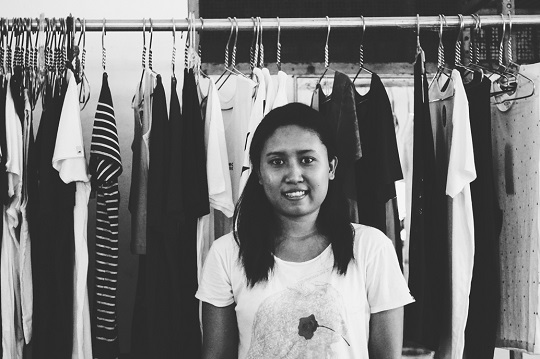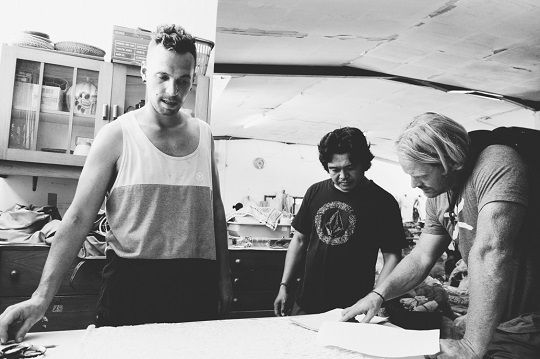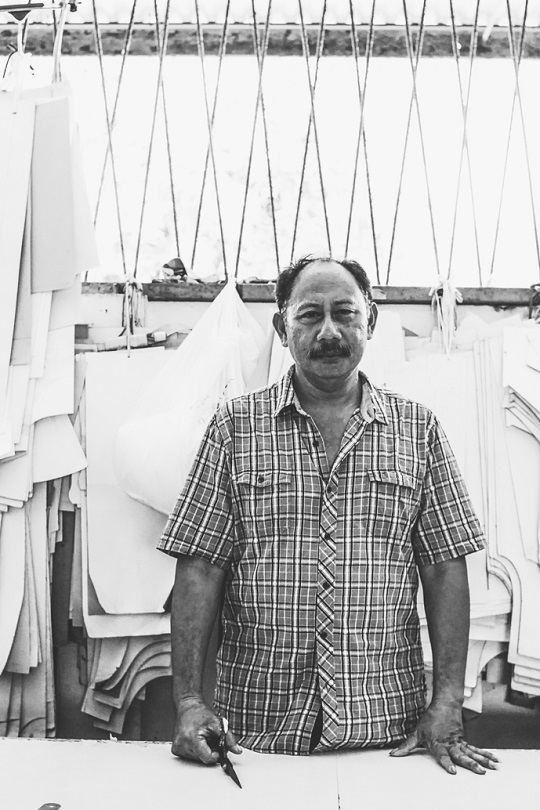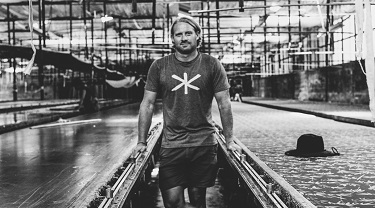Jordan Kendel knows firsthand that the workers in Indonesia who make his sportswear are treated well and paid properly. He’s on site every day.
When the CEO of the Winnipeg-based brand, Ekumenik, began researching potential manufacturing facilities to produce his premium menswear line, he wanted a source that aligned with his principles, including sustainability and the appreciation for nature. He also wanted to work with factories that had strong corporate responsibility values.
In the years following the Rana Plaza garment factory collapse in Dhaka, Bangladesh, in 2013, consumers around the world have started paying more attention to how the clothing brands they buy are made. More than 1,100 workers perished in the Dhaka disaster, sparking widespread concerns over labour practices and working conditions in the textile, apparel and footwear industries. Major Canadian brands weren’t spared reputational damage when it emerged that some of their products were manufactured at the facility.
Apparel export growth
Over the same period, the Canadian apparel industry has grown steadily. Exports of Canadian apparel have risen from $1.47 billion in 2014 to just under $2.1 billion in 2018. The world wants to wear Canadian designs, but they also want to know how they’re made. Were the workers who made them paid fairly? Do they have safe working conditions? How does production impact the environment?
While the textile, apparel and footwear sector is an important contributor to economic and social development, it can expose Canadian exporters to a range of issues, depending on the countries from which they procure, the relationship with their suppliers and the nature of their relationship with them. The complexity and opacity of the value chains can make it difficult for any one brand or retailer to identify situations where problems are occurring.
Export Development Canada can help small- to medium-sized enterprises (SMEs) in the apparel and footwear industry sort through these issues. Taking steps to ensure your company’s supply chain meets your ethical standards can do more than bolster your brand reputation with consumers. It can also help you secure financing and investment to grow your business.
A supply chain in flux
The challenge of finding suppliers in the apparel industry that meet a company’s standards for corporate social responsibility has become even more difficult in recent years, says Bob Kirke, executive director of the Canadian Apparel Federation.
“Sourcing patterns, especially over the last three years, have been thrown to the wind,” he says, adding that a lot of this has to do with the trade tensions between the United States and China.
“It’s a real dynamic situation where companies are moving production out of China and going to different countries. In some cases, those countries are losing trade preference status in other places, like Europe. Everything is more dynamic than it ought to be.”
Kirke acknowledges the industry shift toward increased supply chain transparency since Rana Plaza, but adds that even when you’re diligent, you can miss things. “It’s not easy to understand the full picture of what’s going on at a given facility or in a given country,” he says. He recommends the importance of having boots on the ground to get a firsthand view of a facility.
Ekumenik: Handmade in Indonesia near world-class surf
That was exactly the approach Kendel, CEO of Ekumenik (derived from a Greek word meaning the inhabited world), took when he decided to set up manufacturing operations in Indonesia. Kendel first got the apparel bug in high school when he and some friends started designing T-shirts and selling them to classmates. “We were always successful getting the product in people’s hands, but we never made any money,” he says. But that failed high school venture gave him his first contact with Indonesia in 1999 as an apparel manufacturing destination when a family friend sourced material from the Southeast Asian country.

After completing his degree at the University of Manitoba, Kendel headed to the mountains in Alberta and the snowboarding life. When not on the slopes, he divided his time between jobs in a snowboard shop, bartending and trying to rekindle his idea for an apparel brand based on the lifestyle he was living.
“I wanted something that told a story, which is why Ekumenik is ‘handmade near world-class surf’ in Indonesia,” he says.
As a small, independent designer, Kendel also found that Indonesia’s production minimums weren’t as high as in other countries. “Indonesian factories typically accept minimums that were much more in line with the volume of product we could get through season to season when we started.”
Personal oversight
After making a connection at a beach karaoke bar, Kendel set up the company’s first manufacturing operations at a factory in Bali in 2008, where one of his favourite outdoor brands—California-based Volcom—was also made. After several months of going back and forth from Canada to Bali and splitting his time between the business and two other jobs, Kendel made the decision to throw himself into Ekumenik full time and move to Bali, so he could oversee operations. The company now makes products at five facilities in Indonesia, each one specializing in different product types.
How EDC helped
As the business was growing and required financing in order to fill larger orders, Kendel reached out to Export Development Canada through its Winnipeg office. He says that EDC explained that as a lender backed by the federal government, it wouldn’t invest in businesses that hadn’t addressed concerns about worker safety and exploitation among others.
“I know none of that stuff is going on here because I’m in the factory every day,” he says, adding that EDC asked a lot of important questions about the working conditions in the factories and the types of safety audits that were conducted.

Safety first
Kendel admits that as an SME, he isn’t placing enormous orders for tens of thousands of units at factories in countries such as China and India, which can handle that volume. Ekumenik must rely on smaller factories in places, like Indonesia. Consequently, he’s found that it’s not financially practical for many of these smaller factories to go through a robust auditing process for worker safety and exploitation. By contrast, many larger factories in other jurisdictions must go through these audits to satisfy the needs of the major global brands that use them.
Kendel took it upon himself to instil a self-auditing process at the Indonesian facilities where he does business to make sure they met certain safety standards.
“We made some commitments to improve a couple of things,” he says. Today, Ekumenik has “folders and folders full of our factory audits,” says Kendel. “We supply them to our major vendors and banks upon request.”

7 quick tips to help the apparel industry manage supply chain risk
There are measures you can take to minimize or avoid problematic issues arising from within your supply chain. Your relationship with your suppliers is key. This is particularly true at the outset of your commercial relationship when you have the most influence.
- Review your purchasing practices.
- Implement a Code of Conduct that applies to the company, its suppliers and subcontractors.
- Communicate your labour and workers’ rights expectations in all contracts and vendor agreements.
- Build long-term relationships with your suppliers.
- Conduct audits to better understand your suppliers’ performance.
- Participate in multi-stakeholder initiatives to address issues you feel are beyond your ability to influence on your own.
- Request disclosure of raw material sourcing.
Kirke says taking responsibility starts at the top. “This isn’t just the sourcing manager’s job,” he says. “Someone with a C in front of their title should know what efforts are being made” to ensure corporate social responsibility standards are met. “If companies do these things and follow these practices, it becomes a positive asset to the company.”
If you’re operating in the apparel, footwear and textile industry, download EDC’s PDF outlining recommendations and resources t0 help Canadian exporters address worker safety and exploitation when establishing international business standards with suppliers, manufacturers and factories.





